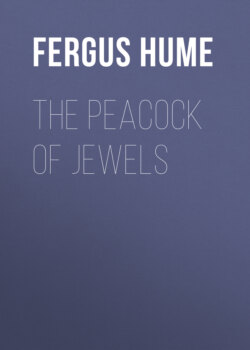Читать книгу The Peacock of Jewels - Fergus Hume - Страница 6
На сайте Литреса книга снята с продажи.
CHAPTER III A STORY OF THE PAST
ОглавлениеThe ancient village of Belstone, hidden in a fold of low-lying, undulating hills, is inhabited chiefly by agricultural laborers. One irregular street, four or five narrow lanes, and a few behind-the-time shops, together with many small cottages, constitute this sequestered hamlet. There are a great number of farms and several country seats in the district, but those who own them usually buy the necessaries of life at Lewes, so Belstone cannot depend upon trade for its support. The villagers, however, do not mind this neglect, as they are sleepy-headed and indifferent to all, so long as they earn sufficient for bed and board. The sole houses of any note are the vicarage at one end of the village, and the great mansion of the Inderwicks at the other. Formerly the owners of The Monastery--as the place is called--were Lords of the Manor, but, as their property has dwindled to a few acres, the title has passed to a modern and more prosperous family. The Inderwicks, formerly so rich and powerful, are now of small account amongst the gentry of the county.
The Rev. John Fuller always maintained that the prehistoric name of the village was Baalstone, and that it was so termed after an altar or stone to Baal or Bel, a deity whom the Ph[oe]nicians had introduced into Britain. But it is more than questionable whether these sea-rovers ever traded so far as Sussex, and Mr. Fuller's assumption can be taken for what it is worth, although he held stoutly to his opinion. But be this as it may undoubtedly there was a Druidical temple where the big house now stands, later a shrine to Diana, and afterwards an altar to Woden, until early Christian missionaries built on the same spot a primitive flint and mortar church. Finally came a Benedictine monastery, which lasted until the reign of that arch-iconoclast, Henry VIII. From the expelled monks it had passed into the possession of Nicholas Inderwick, one of Cromwell's favorite gentlemen, and had been owned by his descendants ever since. The spot had therefore always been a holy one, until secularised in the days of the great Tudor monarch, and perhaps for this reason had never brought good fortune to the Inderwicks, who had built up what prosperity they had attained to on the ruin of sacred things and the misfortunes of sacred people. Certainly evil luck had followed them for generations: they had lost land, money, position and authority, and their family tree had been cut down root and branch, until only one feeble twig sprouted from the mouldering trunk. Marie Inderwick was the last descendant of the ancient line, and dwelt in the house of her ancestors on a penurious income which barely sufficed to keep her in food and fire and clothes. And when she married, or died, it was to be expected that the family name would vanish from the land.
All these things Alan knew very well, as all his life they had been talked about in the village and at the vicarage. There was also a prophecy of an expelled monk dating over three hundred years ago, which promised renewed prosperity to the Inderwicks when their fortunes were lowest. The young man could not think how much lower the fortunes could sink, and wondered as he strolled towards the monastery, if now was the appointed time for the fulfilment of the ancient saying:--
